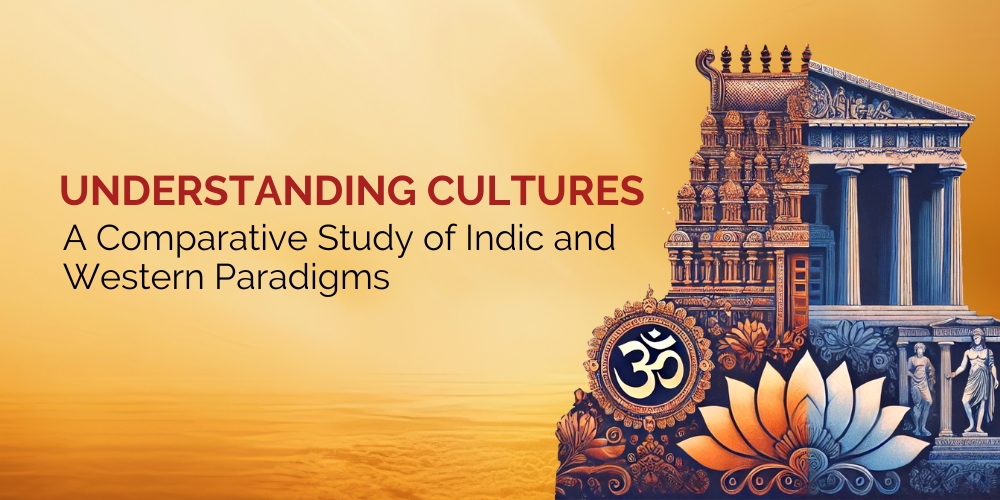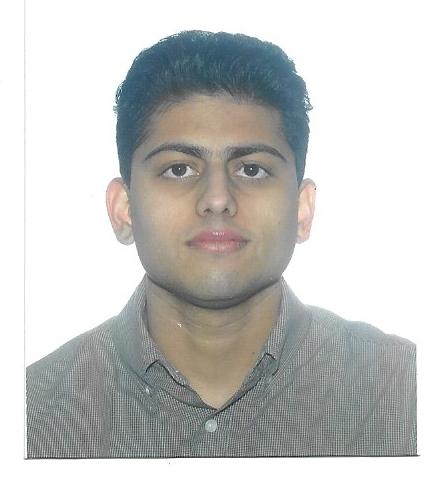
Understanding Cultures: A Comparative Study of Indic and Western Paradigms
This INDICA Course delves into the Comparative Cultural Research program pioneered by Professor S.N. Balagangadhara at Ghent University. It is designed to equip participants with a profound understanding of how cultural narratives are shaped and perceived, particularly through the lens of social science research. By contrasting Western and Indic cultural paradigms, the course will challenge participants to critically examine historical research, colonial influences, and the ways in which cultures are understood and represented.
Faculty
17 October 2024 - 13 February 2025
7:00 PM-8:00 PM IST
Every Thursday (except on 31st of October 2024)
Introduction
This course offers a deep dive into the Comparative Cultural Research program established by Professor S.N. Balagangadhara. It explores the distinct ways in which cultural narratives are constructed and understood, particularly within the framework of social science research. By contrasting Western and Indic cultural paradigms, the course encourages critical reflection on historical research, colonial impacts, and the representation of cultures. Participants will gain valuable insights into the complexities of cultural understanding and the importance of analyzing Western influences on the interpretation of Indic culture.
Course Objectives
- Explore the foundational principles of Comparative Cultural Research
- Understand the methodologies and challenges in social science research
- Critically analyze the influence of Western cultural perspectives on the interpretation of Indic culture
- Engage with key philosophical and historiographical debates
Course Outcomes
By the end of this course, participants will:
- Gain a solid foundation in the principles of social science research
- Identify and navigate the pitfalls of historical research
- Develop an informed perspective on the necessity of understanding Western culture to fully appreciate Indic culture
- Critically analyze various facets of Indic culture in the context of Western influence and colonialism
Course Syllabus
- Philosophy of Science: Introduction and Core Concepts
- Historiography: Its Role and Relevance in Understanding the Past
- Indic Culture through Stories: Do We Need Historiography?
- Orientalism and the Study of Western Culture
- Colonial Consciousness: Understanding Its Impact
- Caste System: Western Foundations and Misconceptions
- Secularism: Comparing Its Role in Europe and India
- Europe, India, and the Limits of Secularism
- The Dravidian Movement: Unveiling Its Western Roots
- Rituals and Mantras: Exploring Their Role in Indic Culture
- Ritual vs. Religion: A Comparative Exploration of Cultural Foundations
Reading List
Participants are expected to engage with the following texts, which provide critical insights into the topics covered:
- “Progress and its Problems: Towards a Theory of Scientific Progress” by Larry Laudan
- “Theory and Reality: An Introduction to the Philosophy of Science” by Peter-Godfrey Smith
- “The Heathen in His Blindness: Asia, the West, and the Dynamic of Religion” by S.N. Balagangadhara
- “India in the Eyes of Europeans” by Martin Farek
- “Reconceptualizing India Studies” by S.N. Balagangadhara
- “The Western Foundations of the Caste System” by Martin Farek, Prakash Shah, Dunkin Jalki, and Sufiya Pathan
- “Europe, India, and the Limits of Secularism” by Jakob De Roover
- “Ritual and Mantras: Rules Without Meaning” by Frits Staal
- “Discovering the Vedas” by Frits Staal
Course Features
- Live Interactive Sessions: Participate in live lectures and discussions with ample opportunities for Q&A.
- Flexible Learning: Access class recordings and materials at your convenience for asynchronous learning.
- Certificate of Completion: Demonstrate your new knowledge with a certificate upon successfully completing the course

